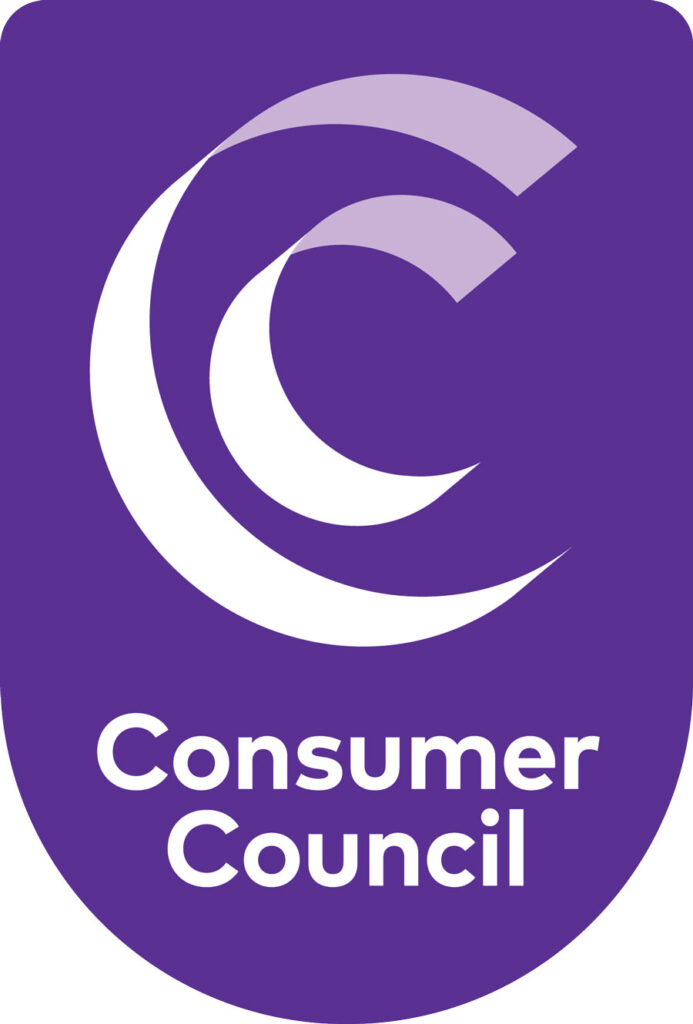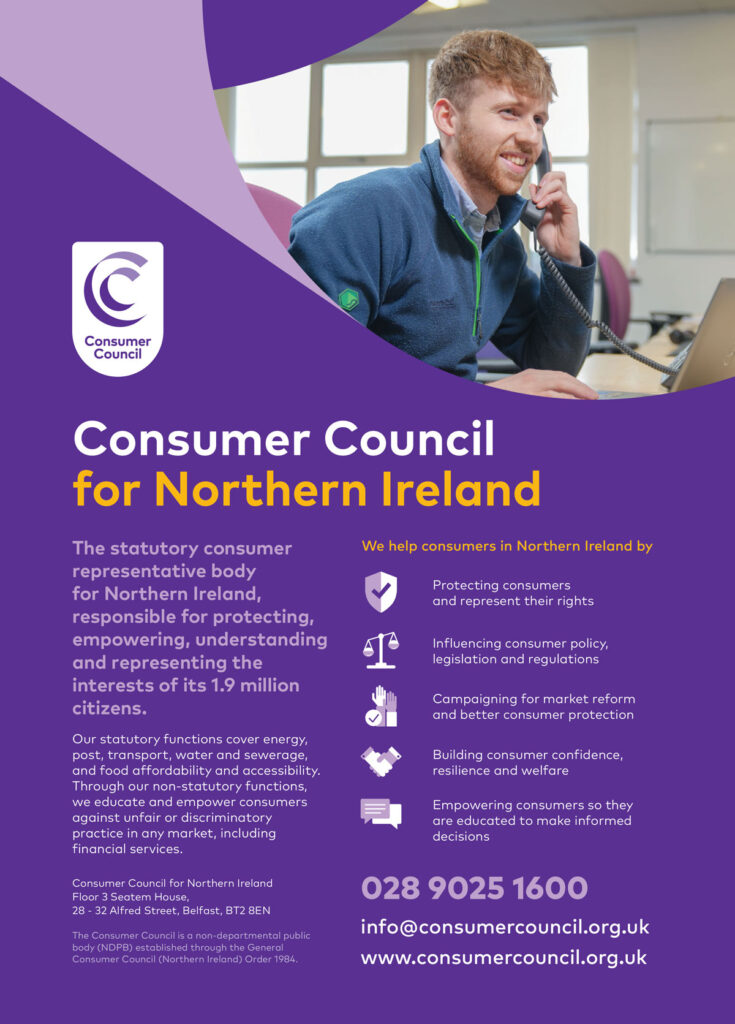
Powering Tomorrow: Securing Ireland’s energy future
2nd June 2025
Utility Regulator
2nd June 2025Protecting consumers through Northern Ireland’s energy transition

The Consumer Council is Northern Ireland’s statutory consumer body and is responsible for protecting and safeguarding the rights and interests of our 1.9 million people. Karen Smyth, Director of Infrastructure and Sustainability at the Consumer Council outlines the work of the organisation relating to consumer empowerment, policy development and consumer representation in facilitating the energy transition.
The Consumer Council strives to bring positive change to the people of Northern Ireland by placing consumer concerns at the heart of public policy development and operational decision-making.
Our statutory responsibilities in the Northern Ireland energy sector include consumer education, research, representation and the investigation of consumer issues relating to electricity or gas supplied by authorised suppliers. The Consumer Council is also a complaint handling body, with the ability to raise super-complaints to the relevant regulator.
We seek to work closely with regulated and unregulated energy suppliers, distribution and transmission companies to further the interests of consumers. We work collaboratively with the regulator, department and the sector to ensure ongoing improvement in the consumer experience, particularly in relation to support for consumers in vulnerable circumstances.
The consumer landscape in Northern Ireland
Consumers in Northern Ireland continue to contend with the impact of a volatile wholesale energy market, with many households and businesses still struggling with their energy costs and a high regional level of fuel poverty.
Since consumers are being asked to play a key role in reducing Northern Ireland’s carbon emissions, with fundamental changes to daily life – in how we heat our homes, travel, shop and eat – during a time of increased fuel poverty, the Consumer Council’s role in consumer advocacy and protection is vital.
The Consumer Council hopes to work closely with the Department for the Economy and other partners to further develop consumer energy literacy, building on our existing energy efficiency and switching campaigns.
Government and industry thinking on the roll out of smart metering is starting to crystallise, which should provide greater consumer empowerment, as people grow in their understanding of their energy use. However, a step change in the level of information and empowerment provided by government and the energy sector will be vital if consumers are to participate in the activity required to meet our net zero targets.
Increased energy prices have completely changed the consumer landscape in relation to energy affordability and emphasise the need to reduce our dependence on imported fossil fuels, but the current relatively low price of oil is influencing consumer decisions in relation to changes to choice of fuel. The recent Department for Communities consultation on a draft Fuel Poverty Strategy highlighted the importance of a just energy transition, and the barriers to effecting change in a manner that consumers can afford.
This outlook underlines the importance of the Consumer Council role in providing detailed scrutiny of markets to maintain high service standards, avoid detriment and to ensure services are designed to meet consumer needs.
The importance of empowerment
It is a key purpose of the Consumer Council to educate, protect and empower consumers. With many consumers struggling to pay their bills, improve their energy efficiency and avoid misinformation, our role is crucial in ensuring consumers can make informed decisions. An independent, trusted voice representing consumer interests, needs and expectations is critical for building trust, which in turn, is key to building consumer confidence
The Consumer Council has a statutory role to handle electricity and natural gas complaints and enquiries. This, combined with our enquiries and signposting service, led to the team helping 2,324 consumers with issues regarding energy water and transport in 2024. We work together with energy companies to ensure each consumer enquiry receives the appropriate response and that patterns or policy issues emerging from complaints are addressed.
We believe that consumer knowledge can only be enhanced by explaining clearly what is required of them and why – at an individual and community level. We therefore undertake various communication and empowerment projects each year and will continue to enhance our service to consumers in the year ahead. For the last three winters we have led significant energy efficiency campaigns in partnership with the Department for the Economy, and hope to expand this work in 2025. We will continue to provide online tools to enable consumers to compare energy tariffs, heating oil, petrol and diesel prices, and transport costs.
Enhanced consumer protection
The Consumer Council team works alongside Northern Ireland policy makers and energy companies to drive change which is beneficial to consumers. In participating in government strategy development, energy sector tariff reviews, reviewing codes of practice and inputting into price controls, we seek to work closely with the Utility Regulator to ensure strong consumer outcomes that fairly reflect investment requirements, company costs and consumer needs.
In 2024, we continued to undertake research in relation to consumer protection during the energy transition, which was used to inform our approach to government consultations such as those on smart metering, the development of a Just Transition Commission, biofuels, fuel poverty, and support for low carbon heat in the residential sector. It is clear from our research how crucial adequate consumer protection will be to encouraging consumers to engage in the energy transition.
We know that most consumers and communities are not ready to engage on the journey before them, but that consumers want a just and fair transition through the connected prism of energy, water and transport, and that they expect protection, support and a robust complaints process when installing, maintaining and financing new technologies.
To reach net zero, we need behavioural, societal and systemic change at scale and at pace.
Protection for consumers is essential to engender confidence and trust, enabling consumers to play their part in driving the energy transition.
 Karen Smyth
Karen Smyth
Director of Infrastructure and Sustainability
For more information contact www.consumercouncil.org.uk

